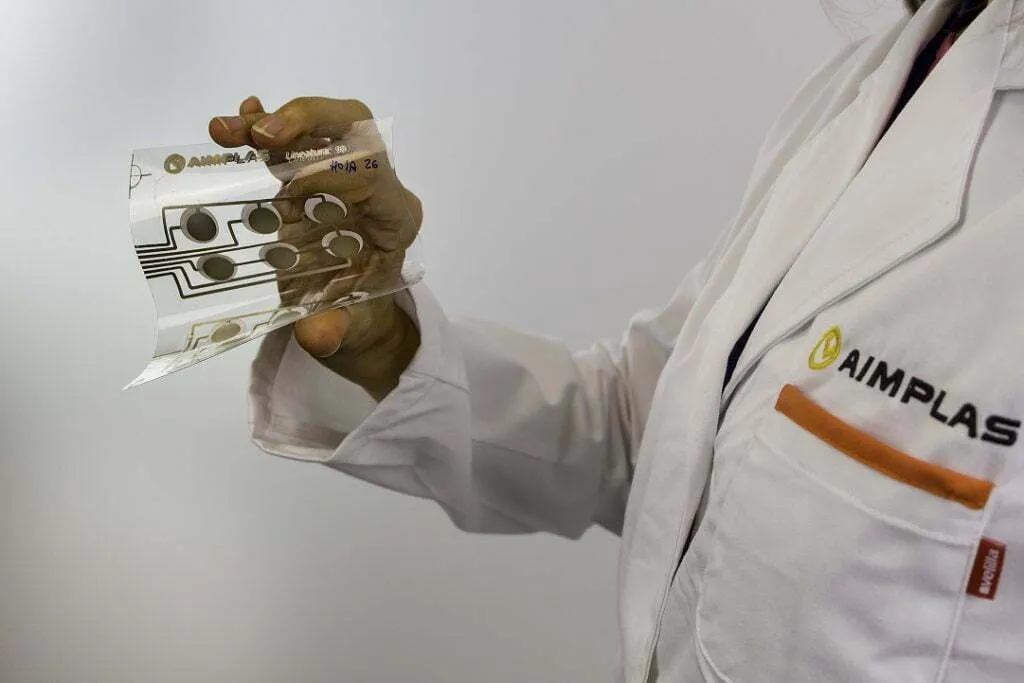AIMPLAS carries out research on conductive plastic materials for intelligent and sustainable transport

Transport accounts for considerable weight within the framework of sustainable development due to its impact on the environment, its associated social and economic effects, and its interrelationships with other sectors. In this context, intelligent transportation systems (ITS) are key to promoting more sustainable and rational mobility and transport to help reduce emissions while providing greater connectivity and user interaction.
The FLEXOTRÓNICA project
AIMPLAS has set up the FLEXOTRÓNICA project, funded by the Valencian Institute of Business Competitiveness (IVACE). It aims to develop flexible electronics and plastic electronics solutions based on lightweight electrically conductive materials such as printed conductive inks on flexible plastic sheets and conductive plastics that can be adapted to complex geometries. These advances will make it possible to integrate light weight electromagnetic shielding elements in vehicles to prevent interference, as well as capacitive surfaces that eliminate the need for buttons, screens, LEDs and circuits. All this will contribute to the development of smarter, safer, lighter and more efficient vehicles that are more environmentally sustainable thanks to the reduction in fuel consumption and emissions.
FLEXOTRÓNICA focuses on the automotive, aeronautics, navigation and rail industries, given their need for more lightweight solutions that consume less energy and provide greater interaction with users and passengers, as well as improved user safety. Plastic electronics and flexible electronics are therefore ideal solutions, given their reduced weight and adaptability. This means that electronics of any shape or structure can be integrated into the final product.

What does the project consist of?
The project is focused on developing electrically conductive plastic materials and solutions based on flexible electronics to meet the main demands of intelligent transportation systems. This includes flexible actuators and proximity sensors to develop a human-machine interface, capacitive sensors and slider sensors for integration in plastic parts to facilitate user interaction; flexible sensors to detect driver fatigue and drowsiness; and thermoplastic and thermoset electrically conductive materials to provide control electronics with electromagnetic shielding from external interference.

Consortium and funding
Organizations and firms in the Valencian Community are participating in the project, namely, the AVIA automotive cluster and the companies Faurecia, Industrias Alegre, Vicedo-Martí and ESB Sistemas. The results of the FLEXOTRÓNICA project will place Valencian automotive and transport companies at the forefront in the development of new integrated electronics solutions.
The project is funded by the Valencian government’s Regional Ministry of Sustainable Economy, Production Sectors, Trade and Employment through IVACE, and is co-funded by the European Union’s ERDF as part of the 2014-2020 ERDF Operational Programme for the Region of Valencia. This funding is earmarked for technology centres in the Valencian Community for non-economic R&D&I projects carried out in cooperation with companies in 2019.